Today, we are covering something I love to talk about…beginning reading for kindergarten, from the perspective of an occupational therapist. Kindergarten is a time to begin the educational process that lasts for at least another 12 or more years. It’s during kindergarten that we establish a love for learning, and beginner readers will become exposed to all of the wonders of reading at this young age!
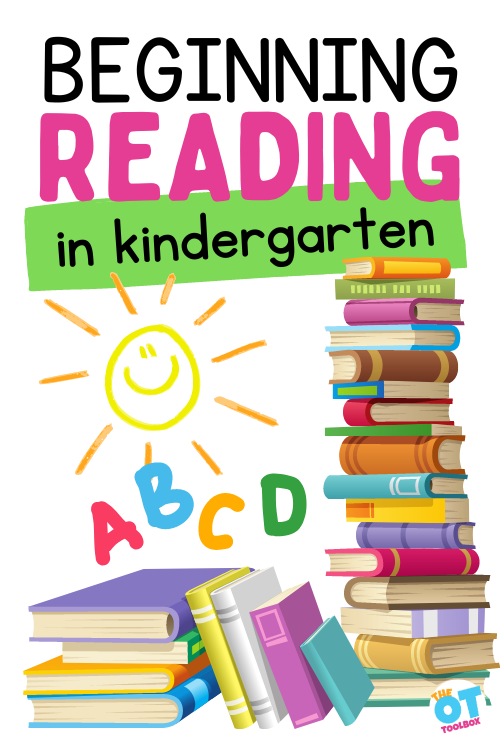
Beginning Reading for Kindergarten
Beginning reading in kindergarten is the start of an essential foundation for future academic success and lifelong learning. Traditionally, the path to teaching young learners how to read involved rote memorization of sight words, a method aimed at promoting basic recognition skills. Our own children were thriving in kindergarten when sight words were used as the primary focus, and because of that, we have many creative sight word activities here on the website.
Some of our favorites that can still be used today, in a different way to foster research-backed Science of Learning include:
- Sight word manipulatives– a great hands-on learning activity for building fine motor skills and recognition of common words. This could be used with letter recognition as well.
- Sight word sensory bin– combine the learning of words, ability to read as a kindergartener, and sensory play. Instead of a sight word sensory bin, try using letters and build words.
- Sight word sensory tray– work on letter identification and word reading in kindergarten. Foster learning by matching letters or words.
Science of Reading and Beginning Readers in Kindergarten
As our understanding of the Science of Reading has evolved, educators moved from strictly sight word memorization and now recognize the immense value of adopting research-backed, multisensory approaches to foster genuine reading skills in kindergarteners.
This is great as an occupational therapist, because we can involve motor skills and multisensory learning into reading skill development.
Occupational therapy providers love play-based learning and hands-on activities that are seamlessly integrated with kindergarten books, while simultaneously nurturing fine motor skills and cultivating a love for reading.
One component to beginning reading in kindergarten is tapping out sounds, or orthographic mapping. For occupational therapists, we LOVE this hands-on approach to reading for kindergarten and beyond!
Why?
Tapping out sounds offers:
- sensory motor feedback
- eye-hand coordination
- finger isolation
- arch development
- separation of the sides of the hand
- hand dominance and laterality
- motor planning
What a great way to build those fine motor skills needed for handwriting! These are just one component of fine motor skills needed at school.
We know that each child is a unique learner, with individual interests, motivators, and unique learning styles. Kinesthetic learners or auditory learners are two examples. Play-based learning taps into the curiosity of young minds, paving the way for a more profound understanding of language and communication. We can do this through sensory bins, centers, and fine motor manipulatives in reading.
Reading in kindergarten also fosters skills:
- Comprehension skills
- Critical thinking skills
- Fine motor skills- drawing, coloring, turning pages, pointing to words and letters on the page, all of these skills develop pencil grasp through play. Add in book-related crafts and you’ve got more fine motor development!
- Emotional development
- Self-confidence as reading becomes easier
- Empathy
Sensory components
Furthermore, the advent of the Science of Reading has shed light on the efficacy of multisensory methods in early literacy development.
By incorporating multiple senses like sight, touch, and sound, children create a neural connections with language, leading to enhanced retention and comprehension.
Multisensory learning experiences, often facilitated through interactive play, empower young readers to decode words, understand phonics, and develop an intuitive grasp of language rules.
By harnessing the power of play-based learning, intertwining hands-on activities with reading materials, and nurturing fine motor skills, children are equipped with a comprehensive toolkit that extends far beyond the confines of the classroom.
Beginning Reading Kindergarten Activities
Try these beginner reader activities for kindergarteners:
Window No-Mess Sensory Spelling
Chicka Chicka Boom Boom Alphabet Bin from Rubber Boots and Elf Shoes
ABC Frame Cards from 3 Dinosaurs
Pop Corn Letters from Relentlessly Fun, Deceptively Educational
F is for Family Unit from Chestnut Grove Academy
Exploring Books Through Play is one resource for fostering many skills through reading.

Colleen Beck, OTR/L has been an occupational therapist since 2000, working in school-based, hand therapy, outpatient peds, EI, and SNF. Colleen created The OT Toolbox to inspire therapists, teachers, and parents with easy and fun tools to help children thrive. Read her story about going from an OT making $3/hour (after paying for kids’ childcare) to a full-time OT resource creator for millions of readers. Want to collaborate? Send an email to contact@theottoolbox.com.

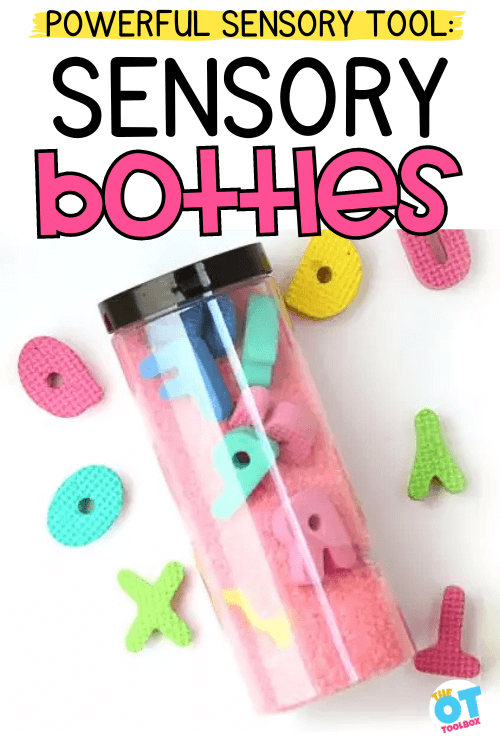
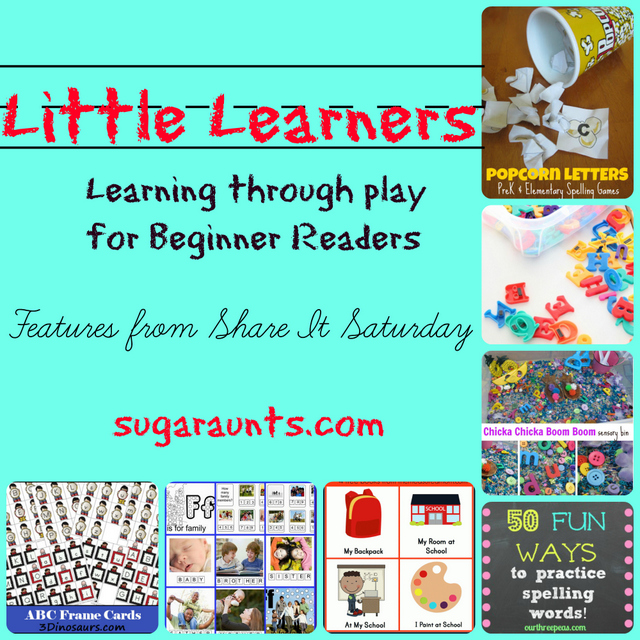
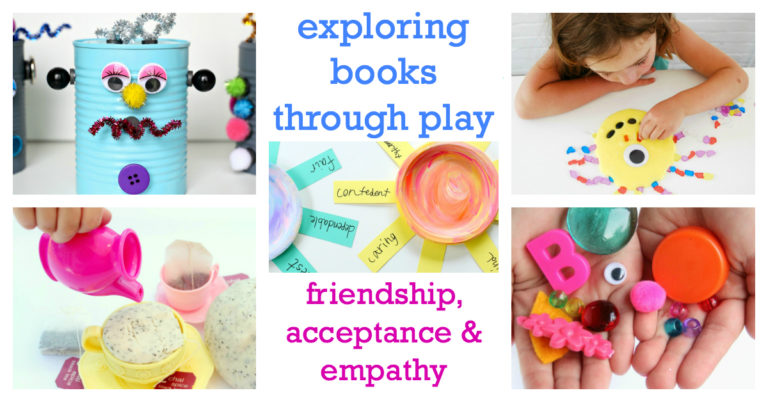
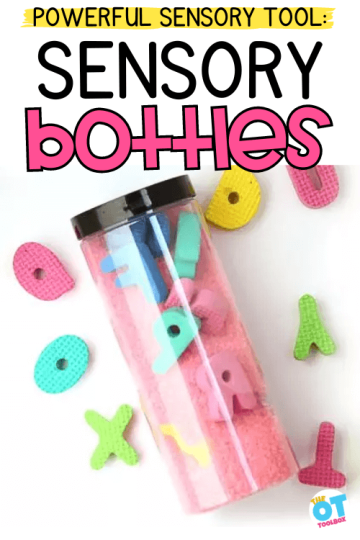
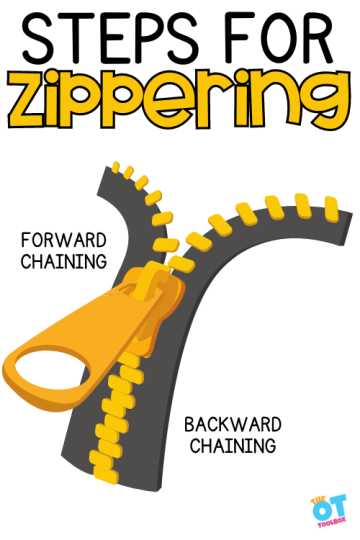
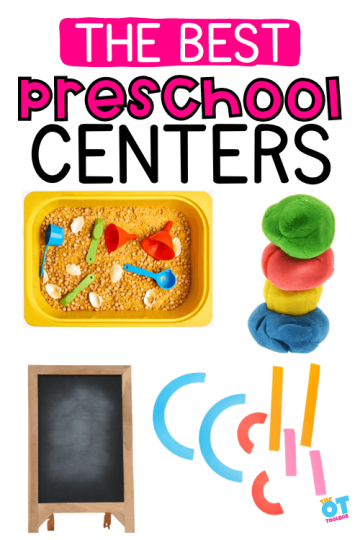
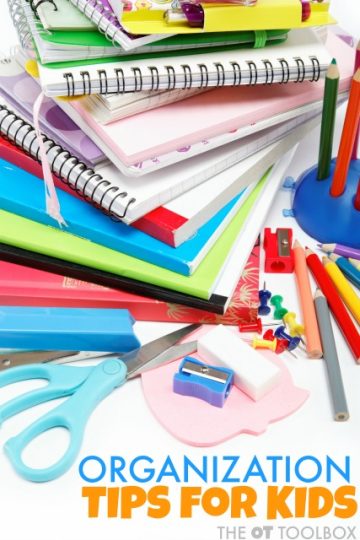
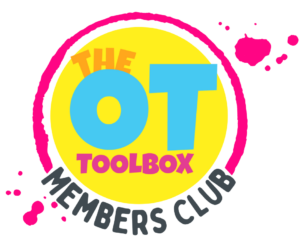
1 thought on “Beginning Reading for Kindergarten”
Thanks for featuring our chicka chicka boom boom bin.
Sandi
Comments are closed.